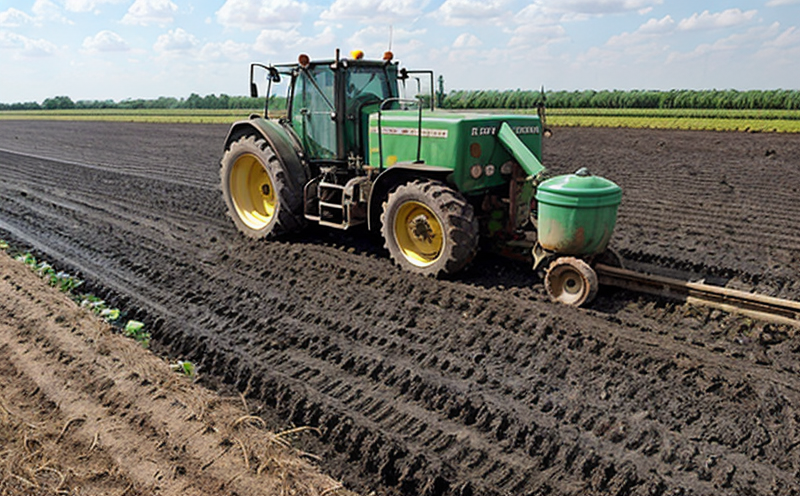
-
Chemical Safety and Certification-
Chemical Safety in Agriculture-
Chemical Waste Disposal in Agriculture
We provide comprehensive solutions designed to help our clients mitigate risks, enhance performance, and excel in key areas such as quality, health & safety, environmental sustainability, and social responsibility.
Discover
For many years, our organization has been operating successfully, boasting modern laboratories that meet international standards. These laboratories are equipped with the latest technology devices and equipment, and we have built a strong team of experienced and trained personnel to operate them.
DiscoverWelcome to Eurolab, your partner in pioneering solutions that encompass every facet of life. We are committed to delivering comprehensive Assurance, Testing, Inspection, and Certification services, empowering our global clientele with the ultimate confidence in their products and processes.
Discover
-
Chemical Safety and Certification-
Chemical Safety in Agriculture-
Chemical Waste Disposal in AgricultureThe use of chemicals in agriculture, such as pesticides, herbicides, fungicides, and fertilizers, is essential for ensuring high crop yields and controlling pests and diseases. However, improper disposal of agricultural chemical waste can have serious consequences, including environmental contamination, harm to wildlife, and health risks to humans. Proper disposal methods are vital for mitigating these risks, maintaining environmental health, and complying with regulations. This article delves into the best practices for chemical waste disposal in agriculture, providing guidelines for safe and sustainable management.
1. Environmental Contamination
2. Impact on Wildlife and Biodiversity
3. Human Health Risks
4. Legal and Regulatory Consequences
1. Proper Labeling and Storage of Chemicals
2. Chemical Waste Collection and Segregation
3. Safe Disposal Methods for Agricultural Chemicals
4. Recycle and Reuse Agricultural Chemical Containers
5. Implementing Integrated Waste Management Systems
6. Using Eco-Friendly Alternatives
1. What are the risks of improper chemical waste disposal in agriculture?
2. How should I store agricultural chemicals on my farm?
3. Can I throw away unused chemicals in the trash or pour them down the drain?
4. How do I handle empty pesticide containers?
5. Are there any alternatives to using chemicals in agriculture?
6. What are the best practices for reducing chemical waste on the farm?
Chemical waste disposal in agriculture is a crucial issue that requires careful attention and adherence to best practices. By properly managing chemical waste, farmers can reduce the environmental impact of agricultural practices, protect human health, and comply with regulations. Through measures like proper storage, recycling, safe disposal, and adopting eco-friendly alternatives, the agriculture industry can minimize chemical risks and contribute to a safer and more sustainable food production system.

Energy and Sustainability Standards
In today’s rapidly evolving world, businesses face increasing pressure to meet global energy a...

NEBS and Telecommunication Standards
Network Equipment Building System (NEBS) and Telecommunication Standards The Network Equipment Bu...

Hospitality and Tourism Certification
Hospitality and Tourism Certification: Unlocking Opportunities in the Industry The hospitality and ...

Construction and Engineering Compliance
Construction and Engineering Compliance: Ensuring Safety, Quality, and Regulatory Adherence In the ...

Consumer Product Safety
Consumer Product Safety: Protecting Consumers from Harmful Products As a consumer, you have the rig...

Lighting and Optical Device Testing
Lighting and Optical Device Testing: Ensuring Performance and Safety Lighting and optical devices a...

Chemical Safety and Certification
Chemical safety and certification are critical in ensuring the safe management of products and proce...

Cosmetic Product Testing
The Complex World of Cosmetic Product Testing The cosmetics industry is a multi-billion-dollar ma...

Battery Testing and Safety
Battery Testing and Safety: A Comprehensive Guide As technology continues to advance, battery-power...

Food Safety and Testing
Food Safety and Testing: Ensuring the Quality of Our Food As consumers, we expect our food to be sa...

Pressure Vessels and Installations Testing
Pressure Vessels and Installations Testing Pressure vessels are a critical component of various ind...

Automotive Compliance and Certification
Automotive Compliance and Certification: Ensuring Safety and Efficiency The automotive industry is ...

Railway Industry Compliance
Railway Industry Compliance: Ensuring Safety and Efficiency The railway industry is a critical comp...

Pharmaceutical Compliance
Pharmaceutical compliance refers to the adherence of pharmaceutical companies and organizations to l...

Agricultural Equipment Certification
Agricultural equipment certification is a process that ensures agricultural machinery meets specific...

Fire Safety and Prevention Standards
Fire Safety and Prevention Standards: Protecting Lives and Property Fire safety and prevention stan...

Product and Retail Standards
Product and Retail Standards: Ensuring Quality and Safety for Consumers In todays competitive marke...

Electromechanical Safety Certification
Electromechanical Safety Certification: Ensuring Compliance and Protecting Lives In todays intercon...

Environmental Impact Assessment
Environmental Impact Assessment: A Comprehensive Guide Environmental Impact Assessment (EIA) is a c...

Industrial Equipment Certification
Industrial equipment certification is a critical process that ensures industrial equipment meets spe...

Renewable Energy Testing and Standards
Renewable Energy Testing and Standards: Ensuring a Sustainable Future The world is rapidly transiti...

Trade and Government Regulations
Trade and government regulations play a vital role in shaping the global economy. These regulations ...

Healthcare and Medical Devices
The Evolution of Healthcare and Medical Devices: Trends, Innovations, and Challenges The healthcare...

Military Equipment Standards
Military Equipment Standards: Ensuring Effectiveness and Safety The use of military equipment is a ...

Aviation and Aerospace Testing
Aviation and Aerospace Testing: Ensuring Safety and Efficiency The aviation and aerospace industr...

IT and Data Center Certification
IT and Data Center Certification: Understanding the Importance and Benefits The field of Informatio...

Environmental Simulation Testing
Environmental Simulation Testing: A Comprehensive Guide In todays world, where technology is rapidl...

MDR Testing and Compliance
MDR Testing and Compliance: A Comprehensive Guide The Medical Device Regulation (MDR) is a comprehe...

Transportation and Logistics Certification
Transportation and Logistics Certification: A Comprehensive Guide The transportation and logistics ...

Electrical and Electromagnetic Testing
Electrical and Electromagnetic Testing: A Comprehensive Guide Introduction Electrical and electrom...